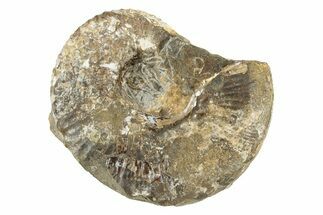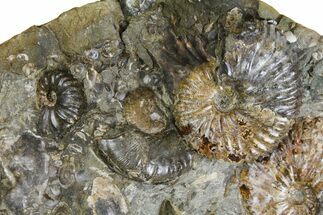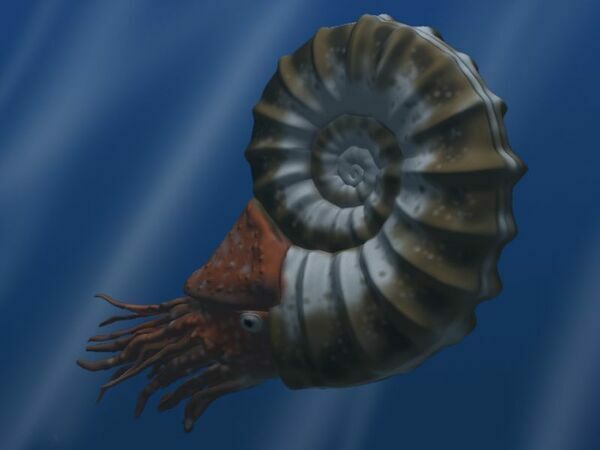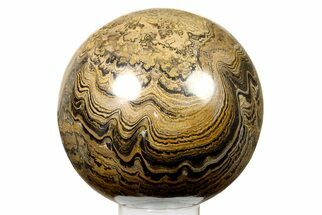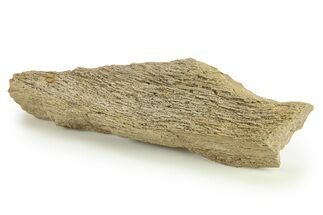This Specimen has been sold.
2.4" Cretaceous Fossil Ammonite (Hoploscaphities) - South Dakota
This is a beautiful, 2.4" wide Hoploscaphities nicoletti ammonite fossil that was collected from the Fox Hills Formation of South Dakota. It has been meticulously prepped to expose it from the hard concretion it was found in.
It comes with an acrylic display stand.
It comes with an acrylic display stand.
These 70 million year old ammonites lived when South Dakota was a shallow inland sea. They were found preserved in concretions when split open. They then had to be hand-prepared to remove the hard rock surrounding them from their shells, a very time consuming task.
About Ammonites
Ammonites were ancient marine cephalopods, similar to today's squids and octopuses, but with a defining feature: their distinctive, tightly coiled spiral shells. These shells, resembling those of modern nautiluses, served as both a protective home and a buoyancy aid, allowing ammonites to navigate the prehistoric seas with ease. First emerging around 240 million years ago in the Triassic Period, ammonites thrived for over 175 million years, adapting through numerous forms and sizes. As predatory creatures, they likely fed on smaller marine organisms, using their tentacles to capture prey. However, their long reign came to an end 65 million years ago at the close of the Cretaceous, coinciding with the mass extinction event that also eliminated the dinosaurs.
Ammonites were ancient marine cephalopods, similar to today's squids and octopuses, but with a defining feature: their distinctive, tightly coiled spiral shells. These shells, resembling those of modern nautiluses, served as both a protective home and a buoyancy aid, allowing ammonites to navigate the prehistoric seas with ease. First emerging around 240 million years ago in the Triassic Period, ammonites thrived for over 175 million years, adapting through numerous forms and sizes. As predatory creatures, they likely fed on smaller marine organisms, using their tentacles to capture prey. However, their long reign came to an end 65 million years ago at the close of the Cretaceous, coinciding with the mass extinction event that also eliminated the dinosaurs.
SPECIES
Hoploscaphities nicoletti
LOCATION
Dewey County, South Dakota
FORMATION
Fox Hills Formation
SIZE
Ammonite: 2.4" wide, Entire Specimen: 4.5 x 2.7"
CATEGORY
SUB CATEGORY
ITEM
#242538
We guarantee the authenticity of all of our specimens.
 Reviews
Reviews

